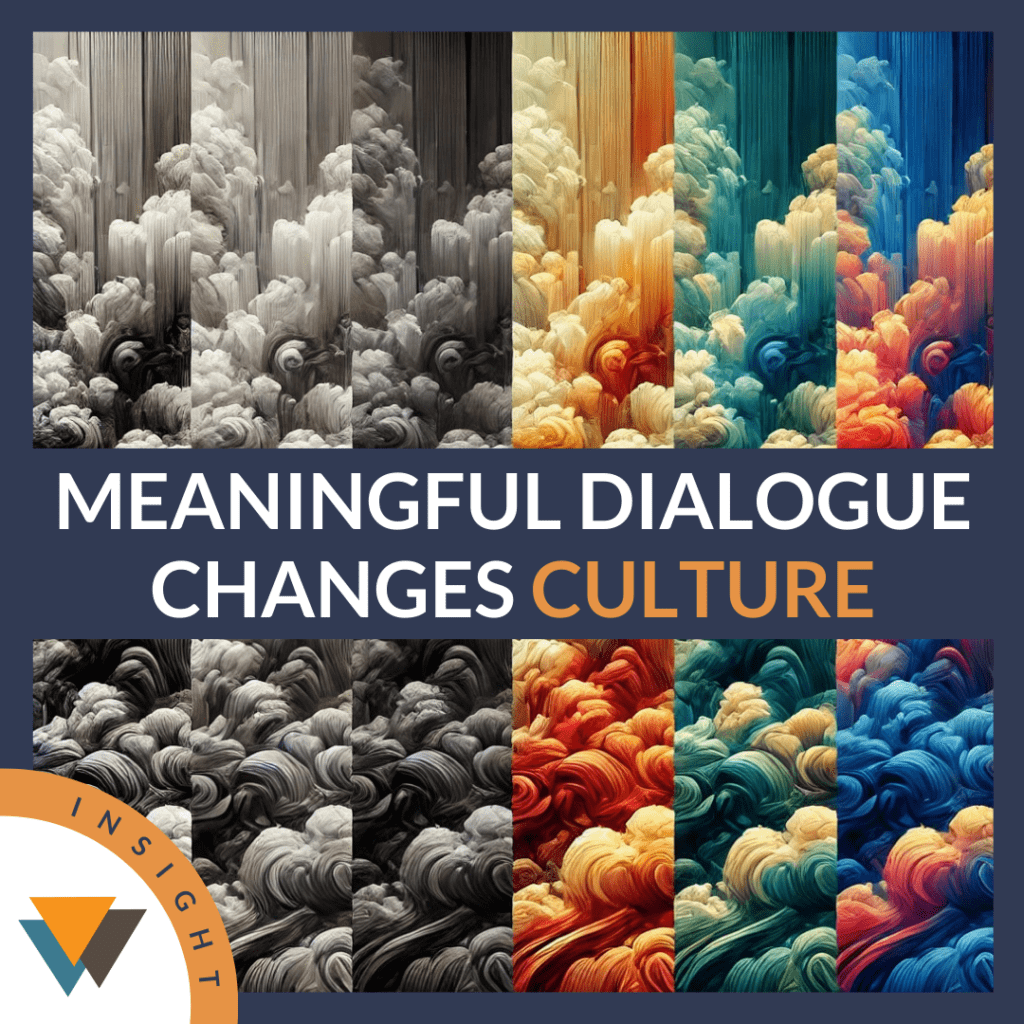
What if Your Judgment Is Bad?
I frequently work with leaders who find themselves in conflict with other leaders or their team. Conflict itself is not bad. It is how we handle or mediate the conflict that will ultimately build or undermine our team unity and culture.
There is a well-studied concept called the Fundamental Attribution Error*. This concept says that people tend to blame the shortcomings of others on some character flaw. When it comes to others, we tend to believe their behavior is a product of their laziness, dishonesty, or intrinsic flaw. When we assess our own lack of performance, it is not because of a character flaw but because of overwhelming external circumstances. It isn’t our fault; anyone else would have done the same thing given the circumstances.
Judging others is rarely helpful. People do what they do for a good reason, but remember, it is for their reasons, not yours. We, as humans, are in no position to judge or condemn others. We still address the behavior but do it without judgment.
Here are some signs you have crossed the line into unhealthy judgment:
- You are emotionally engaged negatively—think anger, disgust, or extreme frustration
- You are using absolutes, like “always” and “never,” when describing the other person
- You are making conclusions about another person’s character; they are lazy, dishonest, or a thief
Unhealthy judgment will not help the situation. It will only serve to harm yourself and your team. I encourage you to have a conversation with the other person using these three DRYVE foundational principles:
- Mutual Respect—Suspend all judgment about motives.
- Shared Purpose—What do we want to accomplish together that we can’t do alone?
- Meaningful Dialogue—Have a two-way conversation with open sharing of insights and perspectives
This approach will more quickly get to the heart of the matter and determine if you and the other person have real and substantive issues. More often than not, you will find you don’t. These types of healthy cultural conversations build trust and provide essential clarity for everyone. To maintain the best conflict-resolution culture, rely on these DRYVE foundational principles, not emotionally charged, personal judgments.
Does your organization currently suffer from unresolved conflict? We can help! Our experienced facilitators bring everyone to the table to help you determine and resolve the real issues. If you would like to know more about conflict management, reach out to us at RandyMayes@DLG.Coach.
*https://www.simplypsychology.org/fundamental-attribution.html
Take action to Contact a Culture Coach at DRYVE Leadership Group today!
Presence is a Superpower
What if the most powerful thing you bring to the table isn’t your strategy, your vision, or...
Lead From the Seat You’re In
The invitation was clear. The vision, compelling. The role, ours to take—until it wasn’t. We sat across...
Turning the Light On
She stood in awe, eyes wide, whispering Wow. Then she pulled a string—and the light disappeared. The...
Touch Someone
Fifteen minutes after I touched her, she was gone. Fifteen minutes after I touched him, he fell...
Meaningful Dialogue Changes Culture
Some organizations thrive. Others stay stuck. The difference? It often comes down to the conversations they have—or...
Are You Ready to Reset?
Leaders set clear goals, communicate expectations, and yet… engagement still falls flat. It’s frustrating when employees don’t...
Why You Should Care
Leadership isn’t just about tasks or goals—it’s about people. And people come with emotions, challenges, and stories...
What Foxes are Lurking in Your Backyard?
In a recent conversation with a leadership team, someone brought up an unexpected topic: foxes in the...
Happy Thanksgiving!
This week, we're sharing what we each are thankful for. Think about it... what are you thankful...
The Power of Intentionality: Are You Ready for 2025?
Recently, my wife and I planned a weekend getaway for my birthday. Nothing profound about the trip,...










